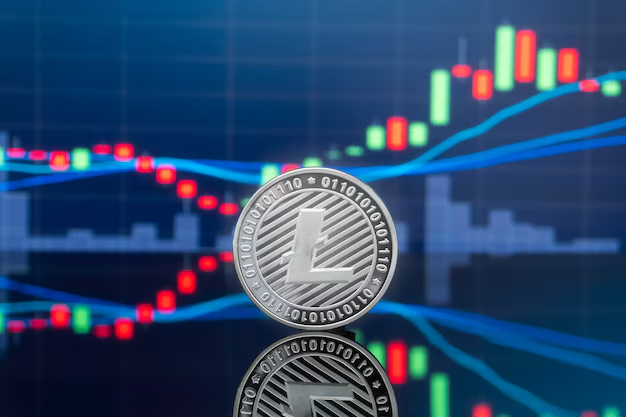XRP: Potential Contender to Bitcoin’s Throne?
In the world of cryptocurrencies, Bitcoin (BTC) reigns supreme as the first and most well-known digital asset. However, other digital currencies, each with their unique features and use cases, have emerged, stirring conversations around which might become the “next Bitcoin.” Among these contenders is XRP, developed by Ripple, which aims to revolutionize cross-border transactions. But can XRP truly be the next Bitcoin? Let’s explore this intriguing question from multiple angles.
Understanding Bitcoin and XRP
What Makes Bitcoin Unique?
Bitcoin pioneered the cryptocurrency movement with its decentralized, peer-to-peer network designed to enable financial transactions without relying on central banks. Since its inception in 2009, Bitcoin has become synonymous with cryptocurrency. Some key features include:
- Decentralization: Bitcoin operates on a decentralized blockchain, providing security and transparency.
- Limited Supply: With a capped supply of 21 million coins, Bitcoin’s scarcity has driven its value over time.
- Store of Value: Often referred to as “digital gold,” Bitcoin is widely viewed as a store of value, due to its deflationary nature.
Enter XRP: The Challenger
XRP is Ripple Labs’ digital asset, designed to facilitate fast, low-cost international money transfers. Here’s what sets XRP apart:
- Speed and Cost: XRP transactions are known for being faster and cheaper compared to Bitcoin.
- Centralized Control: Unlike Bitcoin, XRP is more centralized, as Ripple Labs holds a significant portion of the coins, allowing it to influence its price and market dynamics.
- Cross-Border Transactions: XRP is primarily designed for cross-border payments, distinguishing it from Bitcoin’s intended use as a global currency.
Can XRP Be the Next Bitcoin?
Utility Versus Store of Value
One of the biggest distinctions between XRP and Bitcoin is their primary function. Bitcoin serves mainly as a store of value, celebrated for its resilience against inflation and currency devaluation. In contrast, XRP is tailored more towards utility within the financial sector, especially for banks and international transactions.
Yet, some analysts argue that XRP’s fast transaction times and low costs could eventually pivot its role from purely utility-based to being seen as a store of value. If global adoption rises, XRP’s utility features might enhance its standing as more than just a transaction tool.
Market Position and Adoption
The market capitalization of XRP is significant, ranking it among the top cryptocurrencies. Notably, its partnerships with financial institutions highlight a strong practical application in the financial world.
- Banking Alliances: Ripple’s collaborations with banks show XRP’s potential for sector-wide adoption.
- Regulatory Compliance: XRP’s design considers compliance with various international financial regulations, which may appeal to institutional adoption more than Bitcoin.
However, Bitcoin remains the top contender in terms of general recognition and its increasing adoption by businesses and investors as a transactional tool and store of value.
Volatility and Market Perception
Both XRP and Bitcoin experience volatility inherent to cryptocurrencies, affecting their daily price movements. Bitcoin’s reputation as a pioneer lends it a degree of trust that newer digital assets may need time to build. XRP must navigate similar market challenges to enhance its credibility and attractiveness.
Exploring the Potential of XRP
What Needs to Happen for XRP’s Rise?
For XRP to challenge Bitcoin’s dominance, certain changes or developments might be necessary:
- Regulatory Clarity: Regulatory issues have long shadowed XRP, most notably through the lawsuit filed by the U.S. Securities and Exchange Commission (SEC). A positive legal resolution could pave the way for a more stable future for XRP.
- Increased Adoption: Broader adoption in daily commerce and banking systems globally could significantly elevate XRP’s standing.
- Technological Advancements: Continued improvements in blockchain technology could enhance XRP’s capabilities and scalability, making it a more appealing option.
Advantages of XRP Over Bitcoin
- Speed: XRP transactions are considerably faster, often settled within seconds.
- Transaction Costs: Lower fees make it more suitable for micro-transactions and frequent transfers.
- Energy Efficiency: XRP’s ledger is considerably less energy-intensive compared to Bitcoin’s proof-of-work process.
Considerations and Challenges
Despite XRP’s potential advantages, challenges persist. The centralized nature of the coin could deter those who value Bitcoin’s decentralized ideals. Furthermore, the outcome of Ripple’s legal issues could significantly impact XRP’s future.
Key Takeaways: Bitcoin vs. XRP
Here are some highlighted comparisons between Bitcoin and XRP that capture their fundamental differences and strengths:
📌 Bitcoin
- Pros: Decentralization, Store of Value, Market Recognition.
- Cons: Slower Transactions, Higher Fees, Energy Intensive.
📌 XRP
- Pros: Speed, Lower Cost, Financial Institution Alliances.
- Cons: Centralization Concerns, Regulatory Hurdles, Lesser Market Trust.
XRP in the Cryptocurrency Ecosystem
With the growing ecosystem of cryptocurrencies, each coin often finds its niche. Bitcoin holds symbolic significance as the first successful cryptocurrency, akin to gold’s position in the physical world. XRP, however, offers a different solution targeting efficiencies in modern banking and financial systems.
Broader Cryptocurrency Impacts
As the crypto landscape evolves, integrating various digital assets into financial institutions may redefine value and operational efficiency. Ripple’s focus on cross-border transactions establishes XRP as a strong candidate in digital finance, although its journey is distinct from Bitcoin’s.
Is There Room for Co-Existence?
The global interest in digital currencies and decentralized finance suggests space for multiple cryptocurrencies to thrive side-by-side. XRP and Bitcoin may not necessarily compete head-to-head but can coexist, fulfilling different roles within the broader financial ecosystem.
Concluding Thoughts
While XRP presents intriguing possibilities within specific sectors like global transactions and banking, its path to potentially becoming the "next Bitcoin" involves overcoming significant hurdles. Although XRP’s utility and speed are impressive, Bitcoin’s entrenched status as a decentralized, trusted store of value remains unmatched.
For XRP to match or exceed Bitcoin’s influence would require substantial growth in adoption and trust, alongside resolving its existing regulatory and centralization challenges. As the cryptocurrency world matures, both Bitcoin and XRP might uniquely contribute to the evolving financial paradigm, each serving different, yet complementary roles in reshaping finance as we know it.

